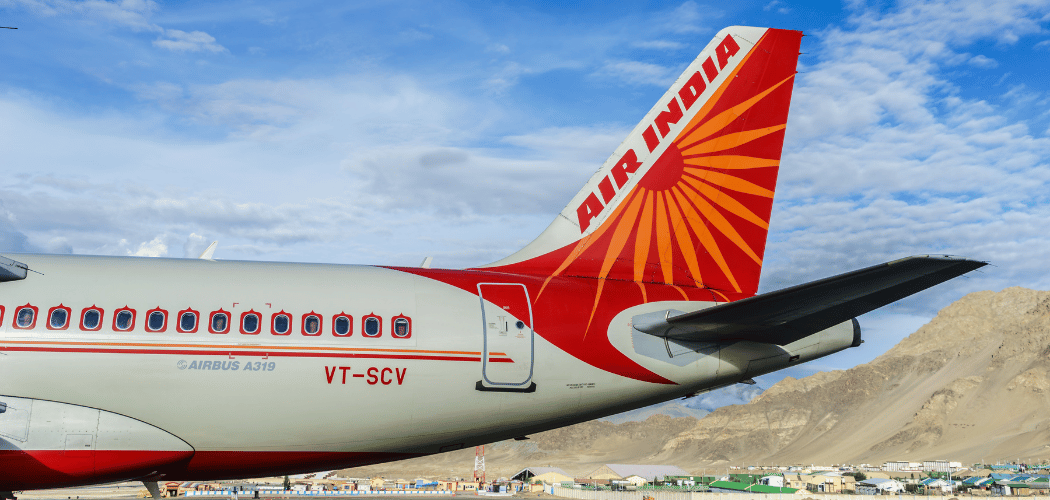 When Air Canada severed its relationship with the Aimia-owned Aeroplan program and announced their intention to create and operate their own proprietary loyalty program, many industry observers pronounced the end of the airline loyalty program spinoff, in which an airline “spins off” its loyalty program into a separate company. Now a regular observer of the airline loyalty space, Stifel analyst Joseph DeNardi, is once again predicting that one or more airlines may opt to spin off their loyalty programs in the next few years. Is DeNardi right? Or is the notion of another airline loyalty spinoff as dead as disco? The experts weigh in.
When Air Canada severed its relationship with the Aimia-owned Aeroplan program and announced their intention to create and operate their own proprietary loyalty program, many industry observers pronounced the end of the airline loyalty program spinoff, in which an airline “spins off” its loyalty program into a separate company. Now a regular observer of the airline loyalty space, Stifel analyst Joseph DeNardi, is once again predicting that one or more airlines may opt to spin off their loyalty programs in the next few years. Is DeNardi right? Or is the notion of another airline loyalty spinoff as dead as disco? The experts weigh in.
By Rick Ferguson
DeNardi has long been a vocal proponent of more transparency in airline financial reporting on the profitability of their loyalty programs, as well as a contrarian who believes that most analysts undervalue airline loyalty programs—and therefore undervalue the airlines. As an example: while a recent On Point Loyalty report detailing the Top 100 most valuable airline loyalty programs placed the most valuable airline program as Delta Skymiles at $21.7 billion, DeNardi earlier this year estimated the American Airlines AAdvantage program at a $37.6 billion valuation—a greater valuation, by the way, than the airline itself, at an estimated $21.2 billion. That’s a staggering gap—and DeNardi is right in arguing that greater transparency in financial reporting would help investors better price airline stocks.
DeNardi’s high valuations also serve as the basis for his prediction to Skift that one more airlines might spin off their loyalty programs in the coming years. Money quote:
“[DeNardi] said in a research note that more carriers, probably outside the United States, may consider spinoffs in the next year or two. Today’s loyalty schemes, he said, generate significant profit by selling airline miles to banks and merchants, and they might be too valuable for airlines to run themselves. ‘The bottom line is that there is far too much value trapped within airline loyalty programs, far too much demand within private equity to invest in airline loyalty programs, and far too much cash within private equity for nothing to happen within the next few years… Airlines could reward shareholders by monetizing these businesses and take advantage of this valuation arbitrage… The business of running an airline and the business of running a marketing company — i.e. a loyalty program — are fundamentally distinct and require very different skill sets.’”
DeNardi’s opinion that airlines aren’t adept at running their own frequent-flyer programs may be news to the airlines, as Air Canada, for one, cited their desire to regain control of their flyer relationships as one of the primary reasons behind their breakup with Aeroplan. Worldwide, the trend has been toward brands regaining more control over their customer relationships; coalition loyalty programs have been largely in retreat over the last few years, as the favorable economics that drove coalition partnerships have largely shifted in favor of brands operating their own programs. Likewise, it’s difficult to find the rational for cash-healthy airlines to cede control of their loyalty programs when most previous spinoffs were driven by financial distress.
What do the experts say? Writing at the time of the Air Canada announcement earlier this year, Global Flight CEO Ravindra Bhagwanan was vociferous in his denunciation of both the airline spinoff model and its cheerleaders:
“Full spin-offs of loyalty programs don’t work as they create a strategic and financial gap between the ‘moral’ and financial owner of the program. If the players in the only true spin-off constellation we had in the market and which was praised as the example par excellence for everybody to follow comes to that conclusion, there is nothing more to add here. The next time you hear about this big latest trend in the industry, ask yourself a few critical questions before blindly following it: Who has initially declared this a trend/who keeps on pushing it?”
Bhagwanan’s opinion is that the spinoff model was never a good idea, and that the notion that it might be was driven almost entirely by self-interested parties such as Aimia pushing the model. Meanwhile, Ex-Aimia airline consultant Evert de Boer sides with DeNardi in believing that there’s still a little life in the model yet, noting, “The second batch of program carve-outs have applied a number of critical changes to the model, arguably learning the lessons and progressive insights from first-mover Aeroplan.” In particular, he rejects the critics’ notion that all airline loyalty spinoffs were driven by financial desperation:
“The notion that only distressed airlines have opted for a carve-out simply does not hold. At the time of their respective carve-outs, Avianca and Virgin Australia for example were not overly-leveraged, and would in fact have had access to alternative sources of financing. Over in Asia, AirAsia set-up its AirAsia BIG loyalty business as a separate entity from day one, realizing the business would operate better as a standalone entity operating at arm’s length from its various group airlines. Lastly, Qantas established its Qantas Frequent Flyer business as a separate segment at a time when it was achieving record-profits.”
Somewhere in the middle of the debate is airline consultant David Feldman. Writing in Medium also around the time of the Air Canada announcement, Feldman counts himself a skeptic of the model, even as he does acknowledge the validity of DeNardi’s argument that running an airline and running a loyalty program require different skill sets:
“Traditional airline executives know how to bank hubs, hedge fuel, densify aircraft, and manage routes. Clearly — these are very different skills than those required to manage loyalty programs. This usually means that airline executives fail to fully understand and appreciate the nature of the loyalty program (although they are aware of its cash-generative nature), and often make strategic decisions that undermine the program. Additionally — due to competing requirements, traditional airline executives tend to bias cash investment into airline operations which they are more familiar with, even though the loyalty program may actually generate better returns.”
De Boer argues that “Spinoff 2.0” will be most successful when airlines maintain majority financial control of the spinoff, seek strategic investment partners rather than IPOs, and spin off for strategic reasons—such as the desire to operate a program to its fullest potential—rather than solely for financial reasons. Of course, somewhere lost in this debate are frequent-flyers themselves, who want only to enjoy reward and recognition in a seamless environment in which their relationship with the airline mirrors their relationship with the loyalty program. Spinoff 1.0 largely failed in this regard; we’ll see if Spinoff 2.0 can deliver.
Rick Ferguson is Editor in Chief of the Wise Marketer Group and a Certified Loyalty Marketing Professional (CLMP).




